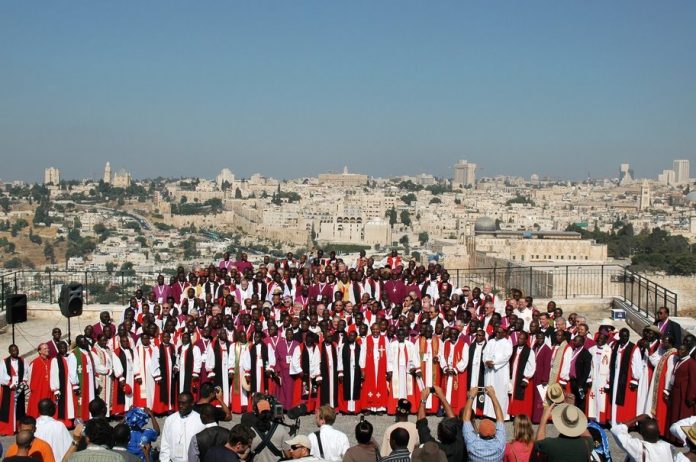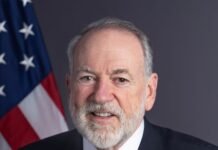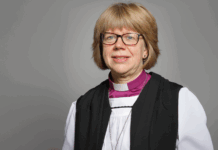A Plenary Address to the GAFCON IV Assembly
18 April 2023
When I lived in Uganda, I learned a term that was applied to the alumni or old boys and girls of an institution. Such persons could be called “historicals.” So I come to you today as an “historical,” one who has been involved in and commented upon many of the important events of recent Anglican history.
I also come to you as a Professor of Biblical Studies – I studied under Prof. F.F. Bruce – and more particularly I come as an expositor of texts.
The previous speaker has taken you through the litany of events that led to the current crisis in Anglicanism. What I hope to do for you today – especially for you who are not so old – is to examine the key texts that led to the Global Anglican Future Conference in 2008 and the Jerusalem Statement and Declaration that proceeded from it.
The Bible: The Foundational Text
The foundational text of all texts is the Bible.
From the Beginning
“I believe in God the Father, Creator of heaven and earth.” The spiritual battle of our day is being fought precisely over this first proposition of the Creed, which comes from the first chapters of Scripture:
Genesis 1:27-28 So God created man in his own image, in the image of God he created him; male and female he created them. And God blessed them. And God said to them, “Be fruitful and multiply and fill the earth and subdue it.”
Genesis 2:24 Therefore a man shall leave his father and his mother and hold fast to his wife, and they shall become one flesh.
But from the earliest days, there has been a counter-voice, Satan, the Ancient Serpent, saying, “Did God really say?” And as our first parents hearkened to this false voice, sin and death entered the human family, and the spoiled fruit of that sin were disordered sexual desire and broken personalities and families and societies.
Paul’s Gospel: God’s Judgement on Sinful Man
This state of man’s rebellion against his Maker forms the backdrop for Paul’s proclamation of the Gospel, and the primary signs of this rebellion, Paul says, are idolatry and sexual disorder;
Romans 1:21-24 Although they knew God, they did not honor him as God or give thanks to him…. Claiming to be wise, they became fools, and exchanged the glory of the immortal God for images resembling mortal man and birds and animals and creeping things. Therefore God gave them up in the lusts of their hearts to impurity, to the dishonoring of their bodies among themselves.
It is precisely this truth of God’s revelation – or rather the denial of this truth – that led to the movement that has caused the current crisis of Anglicanism.
Lambeth 1998
The Lambeth Conference of 1998 was, I believe, the last of its kind. And this was so for two converging reasons. First, the Anglican Communion was confronted for the first time in its 130-year history with a major dispute over doctrine: the approval of homosexual practice in some of its churches. Secondly, the voice of the Global South, the former colonial churches, was heard distinctly for the first time.
This voice was presaged in the Kuala Lumpur Statement of 1997 that came from the “South-to-South Encounter”:
- The Scripture bears witness to God’s will regarding human sexuality which is to be expressed only within the life long union of a man and a woman in holy matrimony.
- We are deeply concerned that the setting aside of biblical teaching in such actions as the ordination of practicing homosexuals and the blessing of same-sex unions, calls into question the authority of the Holy Scriptures. This is totally unacceptable to us.
This same voice was heard again in the famous Lambeth Resolution I.10 on Human Sexuality, which repeatedly refers back to Scripture:
This Conference, in view of the teaching of Scripture, upholds faithfulness in marriage between a man and a woman in lifelong union, and believes that abstinence is right for those who are not called to marriage;
while rejecting homosexual practice as incompatible with Scripture, calls on all our people to minister pastorally and sensitively to all irrespective of sexual orientation.
Lambeth Resolution I.10 passed by an overwhelming vote of 526 to 70, but invoking their “autonomy,” the Episcopal Church USA and the Anglican Church of Canada defied its authority, and despite an outcry from the Global South Primates, the Archbishop of Canterbury refused to exercise discipline, and in 2007 he invited the offending Provinces to attend Lambeth 2008 in good standing. This decade of failure led to the first Global Anglican Future Conference.
The Global Anglican Future Conference 2008
The convening of GAFCON was remarkable: it was organized in six months; it attracted 1,148 participants, including 291 bishops and 7 archbishops. Attendees were treated to first-class teaching, joyous plenary worship, regional fellowships, and a side trip to the Sea of Galilee.
Above all, there was a sense of God’s presence and blessing, such that the Jerusalem Statement claimed that this occasion was “not a moment in time but a movement in the Spirit”; and as of April 2023, there will have been three Assemblies since then.
The spirit of GAFCON was encapsulated in the final Jerusalem Statement read by Archbishop Henry Orombi and approved joyfully and unanimously by those assembled.
The Jerusalem Statement
I shall now turn to the exposition of this important text.
On arrival every attendee at the Conference was asked two questions: “Do you expect GAFCON to do something?” and “Do you want GAFCON to leave the Anglican Communion?” When these replies were tallied, there was virtual unanimity: Yes to the first question and No to the second. This No runs throughout the Jerusalem Statement:
We cherish our Anglican heritage and the Anglican Communion and have no intention of departing from it. And we believe that, in God’s providence, Anglicanism has a bright future in obedience to our Lord’s Great Commission to make disciples of all nations and to build up the church on the foundation of biblical truth (Matthew 28:18-20; Ephesians 2:20).
The Prophetic Indictment: A False Gospel
The Statement now turns to the principal cause for the meeting: the promoting of a false Gospel within the Communion.
I have called this charge “the prophetic indictment,” like those found frequently among the Old Testament prophets.
The Global Anglican Future Conference emerged in response to a crisis within the Anglican Communion, a crisis involving three undeniable facts concerning world Anglicanism.
The first fact is the acceptance and promotion within the provinces of the Anglican Communion of a different ‘gospel’ (cf. Galatians 1:6-8) which is contrary to the apostolic gospel.
The Jerusalem Statement cites St. Paul’s rebuke to the churches in Galatia: “I am astonished that you are so quickly deserting him who called you in the grace of Christ and are turning to a different gospel.” He immediately adds, “not that there is another one, but there are some who trouble you and want to distort the gospel of Christ.”
The Statement describes this false Gospel specifically in terms of religious pluralism (teaching that all ways lead to God) and pansexualism, which goes today under the ever-expanding LGBTQIA++ acronym. These are the prototypical sins of idolatry and sexual immorality that Paul had identified in Romans, chapter 1.
Sexual intimacy outside marriage (porneia) is condemned as sinful more than thirty times in the New Testament: by Jesus (Mark 7:21), by the first Jerusalem Council (Acts 15:20,29), and in various New Testament Epistles. The consequences for those who practice sexual immorality without repentance are catastrophic. Paul says: “they will not inherit the Kingdom of God” (1 Corinthians 6:9-11; Ephesians 5:3-5). How much heavier does this judgement weigh on those who justify and promote this practice.
False doctrine requires a clear and strong response from the guardians of the Church “to banish and drive away all strange doctrines contrary to God’s Word.” This duty leads to the second and third “facts” of the Gafcon indictment:
The second fact is the declaration by provincial bodies in the Global South that they are out of communion with bishops and churches that promote this false gospel.
The third fact is the manifest failure of the Communion Instruments to exercise discipline in the face of overt heterodoxy.
Here is the question for us, my friends. Was this indictment true? Did Gafcon truthfully identify a false Gospel? If it is not true, we need to repent and turn back to the Canterbury Communion. But if it is true, then we have no choice but to separate from it and its promoters and enablers.
This choice to separate is not new. It was made by the Anglican martyrs, including Thomas Cranmer, who died in the fires at Oxford. It was enunciated by the great apologists of the church. In his Apology of the Church of England, Bishop John Jewel stated:
Neither had we departed [from Rome] but of very necessity and much against our own wills. But I put the case, an idol be set up in the church of God, and the same desolation which Christ prophesied to come stood openly in the holy place.
Somewhat later, Richard Hooker wrote in a sermon on Jude:
That which they call schism, we know to be our reasonable service unto God and obedience to his voice which crieth shrill in our ears, “Go out of Babylon, my people, that you be not partakers of her sins, and that ye receive not of her plagues” (Revelation 18:4).
Has there been any change in the situation since 2008? If anything, the crisis is more severe now that the Church of England and the Archbishop of Canterbury have come out not merely as enablers but as promoters of a false Gospel. Representatives of the Global South Fellowship went to Lambeth in 2022, hoping against hope that the Communion leadership might repent, but it would not.
The Confession of Faith
Having identified the source of the crisis of contemporary Anglicanism – a false doctrine and practice gone undisciplined by the Lambeth Establishment – the Jerusalem Statement now turns to a confession of faith. It has two parts.
The first part clarifies where the center of Anglican identity lies, in the words of the Church of England’s own Canon A5:
Our fellowship is not breaking away from the Anglican Communion. We, together with many other faithful Anglicans throughout the world, believe the doctrinal foundation of Anglicanism, which defines our core identity as Anglicans, is expressed in these words: The doctrine of the Church is grounded in the Holy Scriptures and in such teachings of the ancient Fathers and Councils of the Church as are agreeable to the said Scriptures. In particular, such doctrine is to be found in the Thirty-nine Articles of Religion, the Book of Common Prayer and the Ordinal. We intend to remain faithful to this standard, and we call on others in the Communion to reaffirm and return to it.
To be a member of the Anglican Communion is to confess the faith of its founders. Loyalty to the truth of the Gospel takes priority over institutional or historical loyalty, however august:
While acknowledging the nature of Canterbury as an historic see, we do not accept that Anglican identity is determined necessarily through recognition by the Archbishop of Canterbury.
The Jerusalem Declaration
The second part of the confession of faith is the Jerusalem Declaration. In fourteen compact clauses, the Jerusalem Declaration states the fundamental convictions of the Gafcon movement.
The first seven clauses are retrospective, recognizing the paving stones of the historic Anglican Way.
The Gospel and the Work of Christ
The first clause states in a positive way the very Gospel that is at stake.
- We rejoice in the gospel of God through which we have been saved by grace through faith in Jesus Christ by the power of the Holy Spirit. Because God first loved us, we love him and as believers bring forth fruits of love, ongoing repentance, lively hope and thanksgiving to God in all things.
Clause 5 goes on to confess the Lordship of Christ and His Atoning death for our sins.
The Bible
The second clause defines the objective character of Scripture as “God’s Word written,” a phrase from Article 20. It goes on to speak of the subjective work of translation, interpretation, and proclamation, echoing the words of Thomas Cranmer’s famous Scripture Collect.
- We believe the Holy Scriptures of the Old and New Testaments to be the Word of God written and to contain all things necessary for salvation. The Bible is to be translated, read, preached, taught and obeyed in its plain and canonical sense, respectful of the church’s historic and consensual reading.
The remaining clauses in the first half of the Declaration recall important markers of Anglican identity: the Councils and Creeds of the early church; the Thirty-nine Articles, the Book of Common Prayer and the Ordinal.
Current and Future Challenges
The second half of the Jerusalem Declaration turns to current and future challenges to the global Anglican church.
Marriage, Family, and the Single Life
The first clause of this section addresses the presenting issue of the day:
- We acknowledge God’s creation of humankind as male and female and the unchangeable standard of Christian marriage between one man and one woman as the proper place for sexual intimacy and the basis of the family. We repent of our failures to maintain this standard and call for a renewed commitment to lifelong fidelity in marriage and abstinence for those who are not married.
There is need today, I think, to fill in further implications of this clause. For instance, theories of gender identity, the “T” in LGBT, have led to an attack, sometimes violent, on God’s revealed truth and on basic genetic science. Transhumanism and artificial intelligence are coming next, gnostic gospels that challenge the very nature of human beings as embodied souls, created by God.
The Great Commission, Stewardship of the Environment and Social Justice
The next clause turns to two mandates of Jesus and the apostolic church: evangelism and care for the poor.
- We gladly accept the Great Commission of the risen Lord to make disciples of all nations, to seek those who do not know Christ and to baptise, teach and bring new believers to maturity.
- We are mindful of our responsibility to be good stewards of God’s creation, to uphold and advocate justice in society, and to seek relief and empowerment of the poor and needy.
The Global Anglican Communion today is a living testimony to the work of missionaries and evangelists past and present and to the courage of persecuted Christians around the world today.
The Church
The next three clauses have to do with the nature of the visible church. Clauses 11 and 12 speak of the Gospel liberty and charity which allow for variations in culture and tradition “so long as the substance of Faith is kept entire.”
Clause 13, the disciplinary clause, deals with those cases where the faith once for all delivered to the saints has been breached.
We reject the authority of those churches and leaders who have denied the orthodox faith in word or deed. We pray for them and call on them to repent and return to the Lord.
Church discipline, including the necessity of separating from those who openly defy God’s Word, is found in the Old Testament and in Jesus’ and the Apostles’ teaching. It is an integral part of “doctrine, discipline, and worship” in the Articles and the Homilies. As noted above, the Anglican Reformers claimed that their church was a true church while the Church of Rome had gone astray.
The End-Times
The final clause 14 deals with Jesus’ glorious return and the ongoing work of the Holy Spirit in changing lives and building up the Body of Christ. While this is not a new doctrine, it gives an eternal perspective on our current situation. It also warns against the rise of other false gospels, such as the distorted “health and wealth Gospel” and of cults claiming to know the details of the end-times.
The Primates Council
We come now to the final major section of the Jerusalem Statement: the establishment of the Primates Council.
We, the participants in the Global Anglican Future Conference, do hereby acknowledge the participating Primates of GAFCON who have called us together, and encourage them to form the initial Council of the GAFCON movement.
In setting up an authoritative “council” distinct from its Lambeth counterparts, Gafcon signaled its claim to recognize Anglican churches in places where faithful Anglicans were departing or expelled from heretical bodies. Within six months, the Primates Council had recognized the Anglican Church in North America and seated its Archbishop on the Council; in 2014, it accepted the Anglican Church in Brazil; and it has also recognized a number of Branches and independent Dioceses all over the world.
Gafcon, as I see it, took the bold and necessary step in the formation of a new Global Anglican Communion. The Global South Fellowship of Anglican Churches, which has overlapped in many ways with Gafcon, has likewise accepted these new churches.
Conclusion
In a recent essay, I asked: “What Is God Saying to Global Anglicans?” And I replied:
“Behold, I am doing a new thing; now it springs forth, do you not perceive it?” (Isaiah 43:19). The first Global Anglican Future Conference proclaimed that it was “not just a moment in time but a movement in the Spirit.” Fifteen years later, Global Anglicans are being called to assume leadership of a revived, reformed, and reordered Anglican Communion worldwide.
Thank You!



